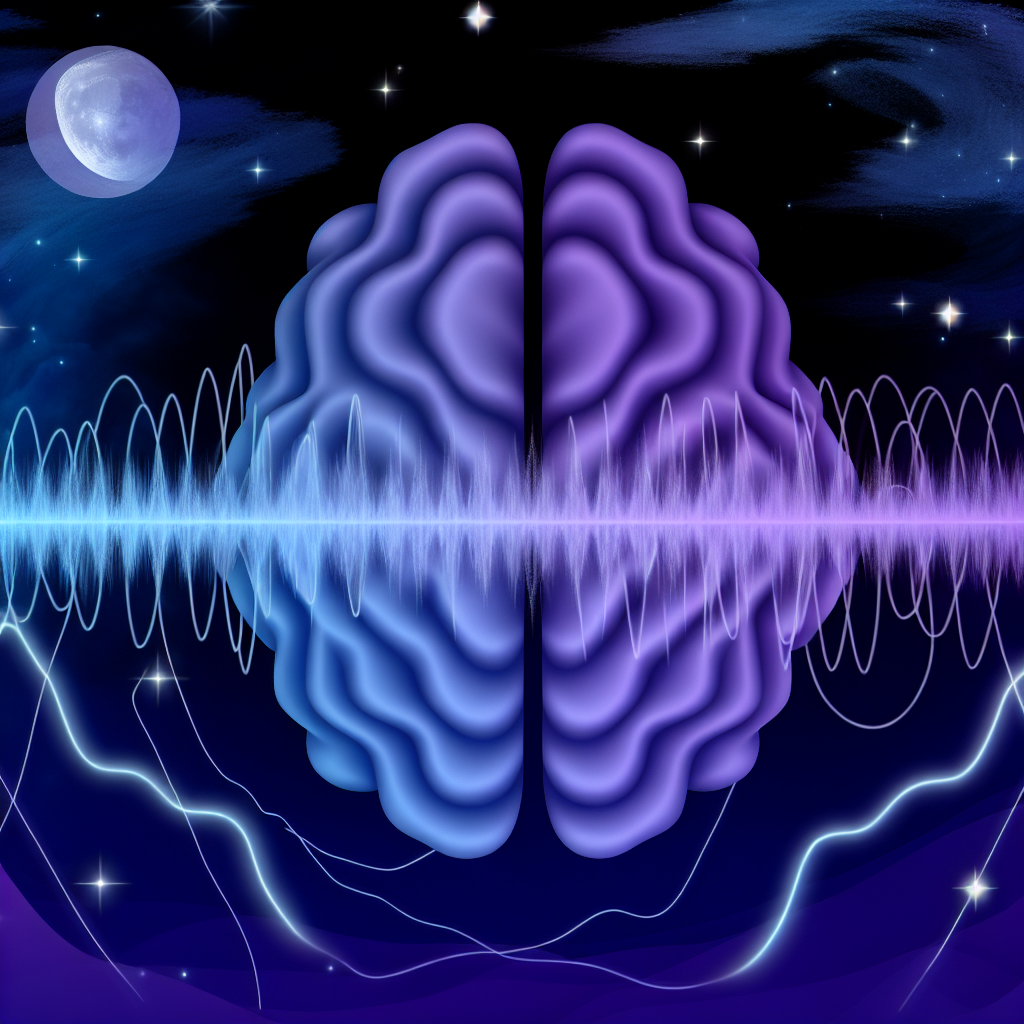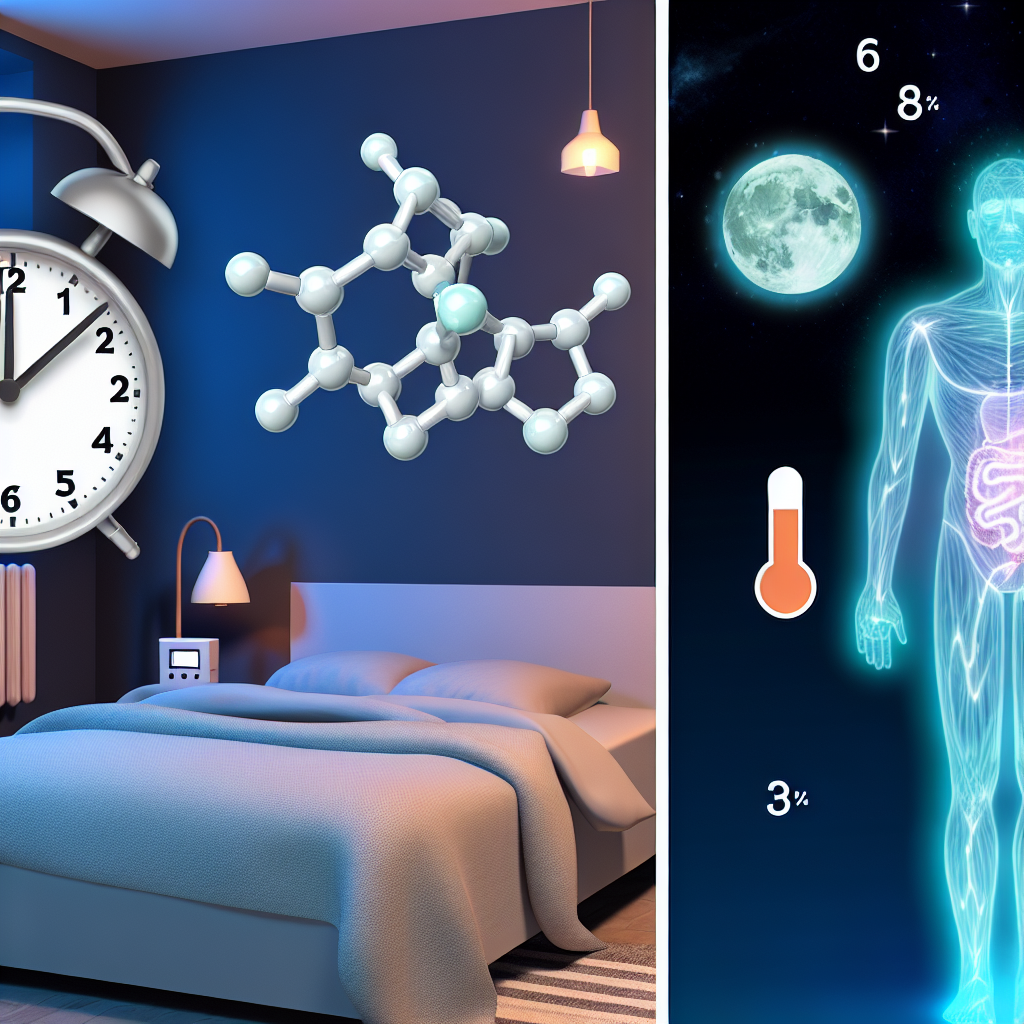Molecular Sleep Tracking: Beyond Heart Rate Variability to Metabolic Biomarkers
Introduction: The Future of Sleep Tracking is Molecular
In today’s fast-paced society, sleep trackers have become essential tools for optimizing rest and overall well-being. From smartwatches to wearable rings, most sleep-tracking devices rely primarily on heart rate variability (HRV), movement detection, and breathing patterns to estimate sleep quality. While HRV has provided valuable insights into sleep stages and overall recovery, technology is evolving, and researchers are exploring more advanced methods for measuring sleep health at a molecular level.
Molecular sleep tracking is an emerging field that moves beyond surface-level physiological signals to analyze metabolic biomarkers—biochemical compounds in the body that reflect distinct physiological processes, including sleep. By assessing metabolites circulating in blood, saliva, urine, and even interstitial fluids, these biomarkers offer a more precise reflection of an individual’s sleep health and potential disorders. This shift has the potential to revolutionize sleep science, providing deeper insights into the body’s recovery, the efficiency of different sleep stages, and the impact of lifestyle and nutrition.
Several key metabolites, such as melatonin and cortisol, have long been associated with sleep regulation. However, recent advances in metabolomics—the large-scale study of small molecules in biological systems—have identified numerous other biomarkers that signal sleep efficiency, sleep debt, and even sleep deprivation. For instance, changes in amino acids, lipids, and glucose metabolism can indicate disturbed sleep patterns, stress, or possible underlying medical conditions such as insomnia or sleep apnea.
Wearable technology companies and scientific researchers are investigating how these metabolic markers can be integrated into next-generation sleep trackers. By utilizing minimally invasive biosensors, such as continuous glucose monitors and sweat analysis patches, sleep monitoring may soon provide a more comprehensive look into circadian rhythm disruptions and sleep quality.
As the science behind molecular sleep tracking progresses, it carries significant implications for personalized medicine, optimizing sleep for athletic performance, managing chronic illnesses, and even enhancing cognitive function. In this article, we will explore key findings from medical studies, the potential benefits of using metabolic biomarkers for sleep tracking, and what the future holds for this cutting-edge technology.
Studies on Metabolic Biomarkers in Sleep Tracking
Scientific advancements in metabolomics and sleep science have revealed that molecular biomarkers can play a critical role in accurately assessing sleep quality and identifying disorders. Several medical studies highlight the significance of these biomarkers and their potential application in personalized sleep tracking.
The Role of Metabolites in Sleep Regulation
A study published in Nature Communications in 2019 examined specific metabolic markers found in blood plasma that correlate with sleep deprivation. Researchers identified that sleep loss significantly alters lipid metabolism and amino acid processing, leading to shifts in energy balance and cognitive function impairments [(Ning et al., 2019)](https://www.nature.com/articles/s41467-019-11786-9). These findings suggest that tracking these biochemical changes could serve as a more precise indicator of sleep debt than traditional HRV-based measurements.
Additionally, researchers at the University of Colorado Boulder conducted a study on melatonin and cortisol biomarkers in saliva to assess circadian rhythm consistency [(Wright et al., 2013)](https://www.pnas.org/content/110/5/E1132). Their results indicated that individuals with disrupted sleep schedules, such as shift workers or those with jet lag, exhibited abnormal fluctuations in these hormone levels. This supports the idea that real-time monitoring of cortisol and melatonin could provide individuals with a clearer picture of their internal sleep regulatory mechanisms.
Metabolic Biomarkers and Sleep Disorders
Another compelling study from The Journal of Clinical Sleep Medicine examined metabolic changes in individuals with obstructive sleep apnea (OSA) [(Brennan et al., 2020)](https://jcsm.aasm.org/doi/full/10.5664/jcsm.8594). The researchers found that patients with OSA exhibited distinct metabolic signatures, with elevated levels of inflammatory markers and decreased fatty acid oxidation. Such findings indicate that metabolic profiling could be an effective way to screen for sleep disorders beyond traditional polysomnography.
Similarly, a study published in Cell Reports in 2021 analyzed urine samples to identify sleep deprivation signatures in metabolic waste products [(Davies et al., 2021)](https://www.cell.com/cell-reports/fulltext/S2211-1247(21)00467-9). The study demonstrated that specific metabolic imbalances, including disruptions in the urea cycle, correlated with poor sleep efficiency. This suggests that non-invasive urine analysis could eventually be implemented in home-based sleep monitoring.
Wearable Technology and Biosensors for Metabolic Tracking
Several technology companies and research groups are working on biosensors that can measure metabolites in real-time. Continuous glucose monitors (CGMs) traditionally used for diabetes management are now being repurposed to assess how glucose fluctuations during sleep correlate with sleep quality and nighttime wakefulness. Additionally, researchers are exploring sweat-based sensors that can detect electrolyte and lactate changes, helping to map out the body’s recovery process during rest [(Heikenfeld, 2020)](https://pubs.acs.org/doi/10.1021/acsnano.9b08140).
The integration of such biomarker tracking in wearable devices could mark a breakthrough in sleep health, allowing individuals to pinpoint dietary, behavioral, or environmental factors that impair their sleep on a deeper physiological level. With further advancements, non-invasive metabolic tracking could soon complement or even surpass traditional HRV-based sleep monitoring.
Conclusion: Unlocking the Power of Molecular Sleep Monitoring
Molecular sleep tracking represents an exciting advancement in sleep science, offering a more detailed and accurate representation of sleep health beyond heart rate variability. By analyzing metabolic biomarkers—including lipids, amino acids, hormones, and glucose—this next-generation technology has the potential to diagnose sleep disorders, optimize recovery, and provide personalized sleep recommendations.
Scientific research has already demonstrated that metabolic changes correlate strongly with sleep deprivation, circadian misalignment, and sleep disorders such as obstructive sleep apnea. The integration of biosensors and wearable devices capable of tracking these molecular processes promises to reshape how we monitor and enhance our sleep.
Ultimately, understanding the biochemical footprint of sleep could unlock new treatment strategies for sleep disorders, optimize daily performance, and improve long-term health outcomes. As further research unfolds, molecular sleep tracking may become a cornerstone of precision sleep medicine, bridging the gap between lifestyle changes and clinically-informed sleep optimization.
Concise Summary:
Molecular sleep tracking is an emerging field that analyzes metabolic biomarkers, such as lipids, amino acids, and hormones, to provide a more detailed and accurate representation of sleep health beyond traditional heart rate variability measurements. This technology has the potential to diagnose sleep disorders, optimize recovery, and offer personalized sleep recommendations, with significant implications for personalized medicine, athletic performance, and cognitive function.

Dominic E. is a passionate filmmaker navigating the exciting intersection of art and science. By day, he delves into the complexities of the human body as a full-time medical writer, meticulously translating intricate medical concepts into accessible and engaging narratives. By night, he explores the boundless realm of cinematic storytelling, crafting narratives that evoke emotion and challenge perspectives.
Film Student and Full-time Medical Writer for ContentVendor.com




